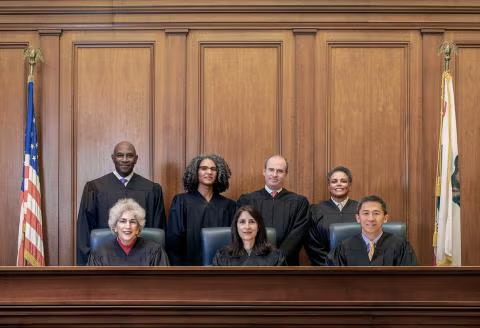Corporate Owners and Officers are Individually Liable for PAGA Penalties
Readers of this blog know the potent plaintiff’s weapon that is California’s Private Attorneys General Act (“PAGA”). PAGA allows an individual employee to “stand in the shoes of the State” and sue his employer for civil penalties flowing from the employer’s wage-and-hour violations.
What makes PAGA so devastating for employers is that the employee is acting as the State of California and suing in a representative capacity on behalf of all aggrieved employees. PAGA allows the employee to recover “civil penalties” from the employer not only for the violations suffered by that employee but also for the violations suffered by each and every other employee as well. Penalties for one violation thus get multiple by hundreds or even thousands due to the numbers of employees affected. When you have multiple violations — which is usually the case — these equations get multiplied again and again.
The result? In the blink of an eye, a single plaintiff with a PAGA claim can create hundreds of thousands of dollars of liability for an employer just for penalties alone. Add to that the legal damages claimed by that employee on his other claims. Plus his attorneys’ fees. All this adds up to make PAGA a nightmare for California employers and a jackpot for California employees and their lawyers.
Well…things just got worse.
In Atempa v. Pedrazzani, the California Court of Appeal held that PAGA penalties can be assessed not only against the employer-entity but also against the individual owners, officers, and agents of the business who cause the wage-and-hour violations to occur. In reaching this conclusion, the Court relied on the plain language in Labor Code §558, which states:
“Any employer or other person acting on behalf of an employer who violates, or causes to be violated, a section of this chapter…regulating hours and days of work in any order of the Industrial Welfare Commission shall be subject to a civil penalty…” (emphasis added)
The Court also looked to the text of Labor Code §1197.1, which similarly provides:
“Any employer or other person acting either individually or as an officer, agent, or employee of another person, who pays or causes to be paid to any employee a wage less than the minimum fixed by an applicable state or local law…shall be subject to a civil penalty… (emphasis added)
The Court found that Paolo Pedrazzani caused the overtime and minimum wage violations to occur. He was also the employer-entity’s owner, president, secretary, and director. Mr. Pedrazzani therefore qualified as the “other person” who could be held liable under Labor Code §§ 558 and 1197.1. Accordingly, the Court ordered Mr. Pedrazzani personally to pay $31,074 in civil penalties and over $300,000 in attorneys’ fees to the plaintiff.
Here’s the takeaway that’s as terrifying as it is clear: an employer’s failure to pay overtime or minimum wages, or its failure to provide meal or rest breaks, or its violation of any other wage-and-hour law for which the State of California imposes a “civil penalty,” subjects not only the corporation to costly liability for civil penalties but also the corporation’s individual owners, officers, and agents. If you are an owner, officer, or agent of a company in California, and if you cause or allow a violation of any California wage-and-hour law, your personal assets are at risk.
What’s not clear after Atempa is whether Labor Code §2802 requires the employer-entity to indemnify an employee who is found to be individually liable for PAGA penalties. That statute’s broad indemnity obligation could require the company to reimburse the individual’s PAGA liability if that individual was an employee found to be acting in the course and scope of his or her employment or under the direction or instruction of the employer. Future litigation will likely have to answer that question unless the California Legislature steps in. Stay tuned!
You can read the Court’s opinion in Atempa v. Pedrazzani here.
Insights
OUR BLOG


